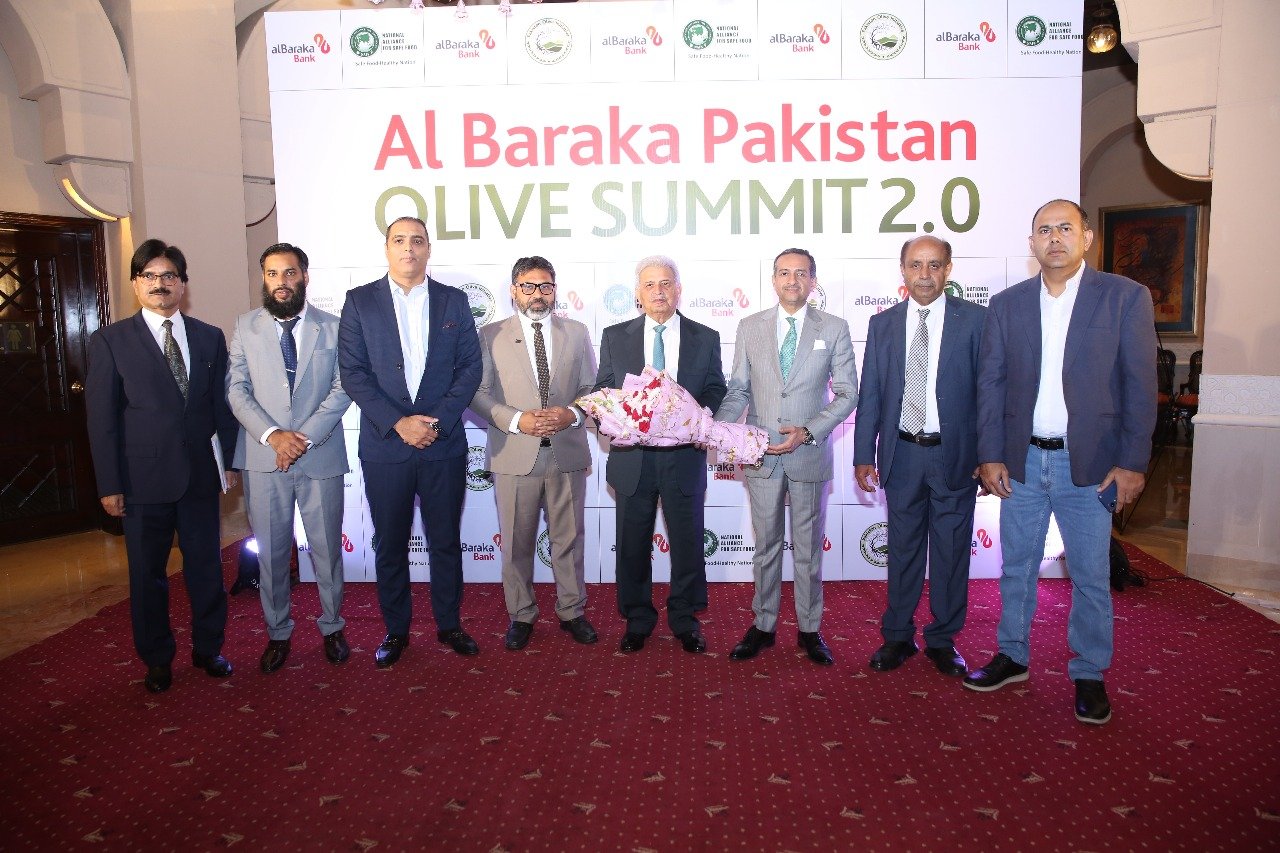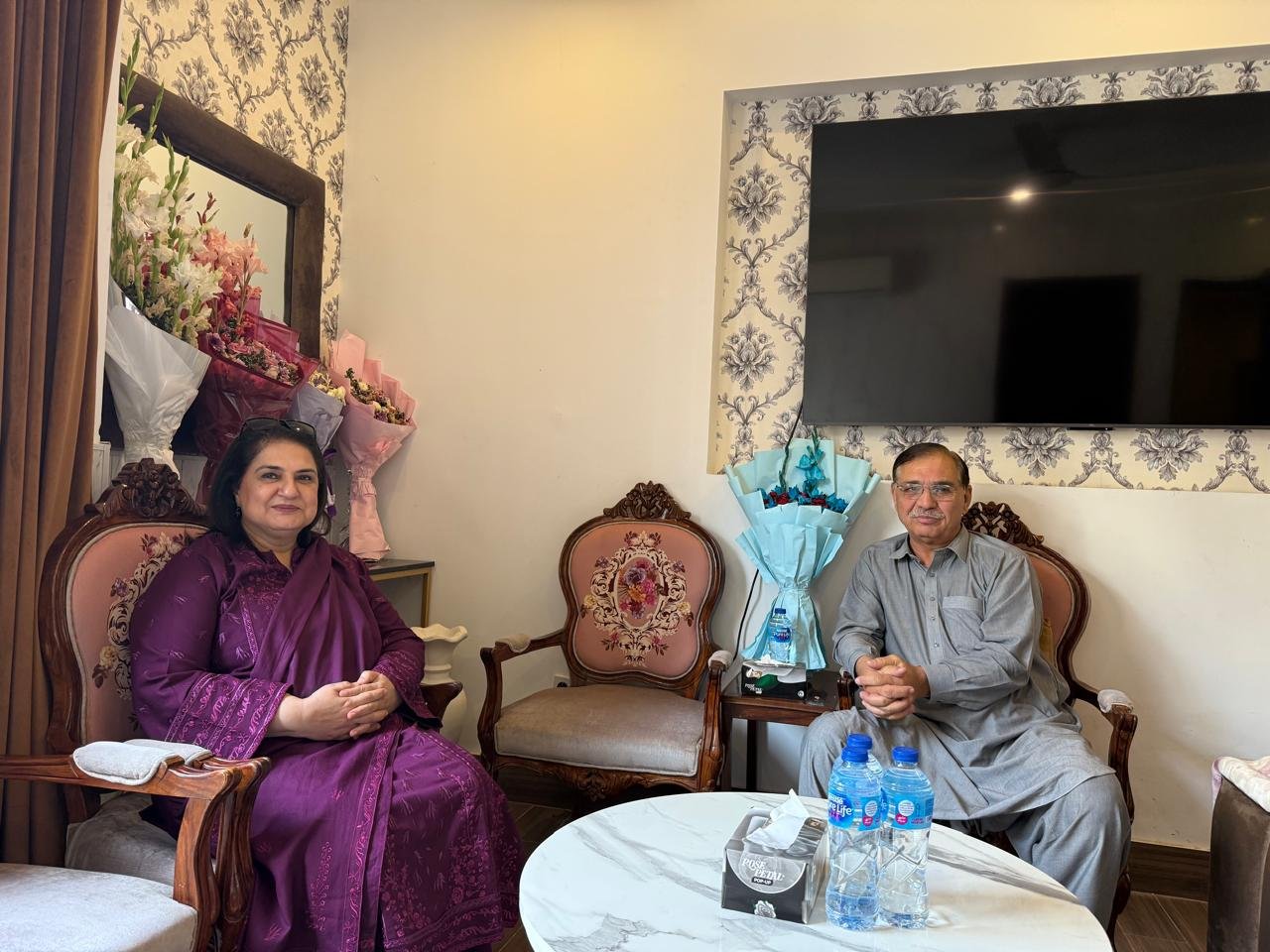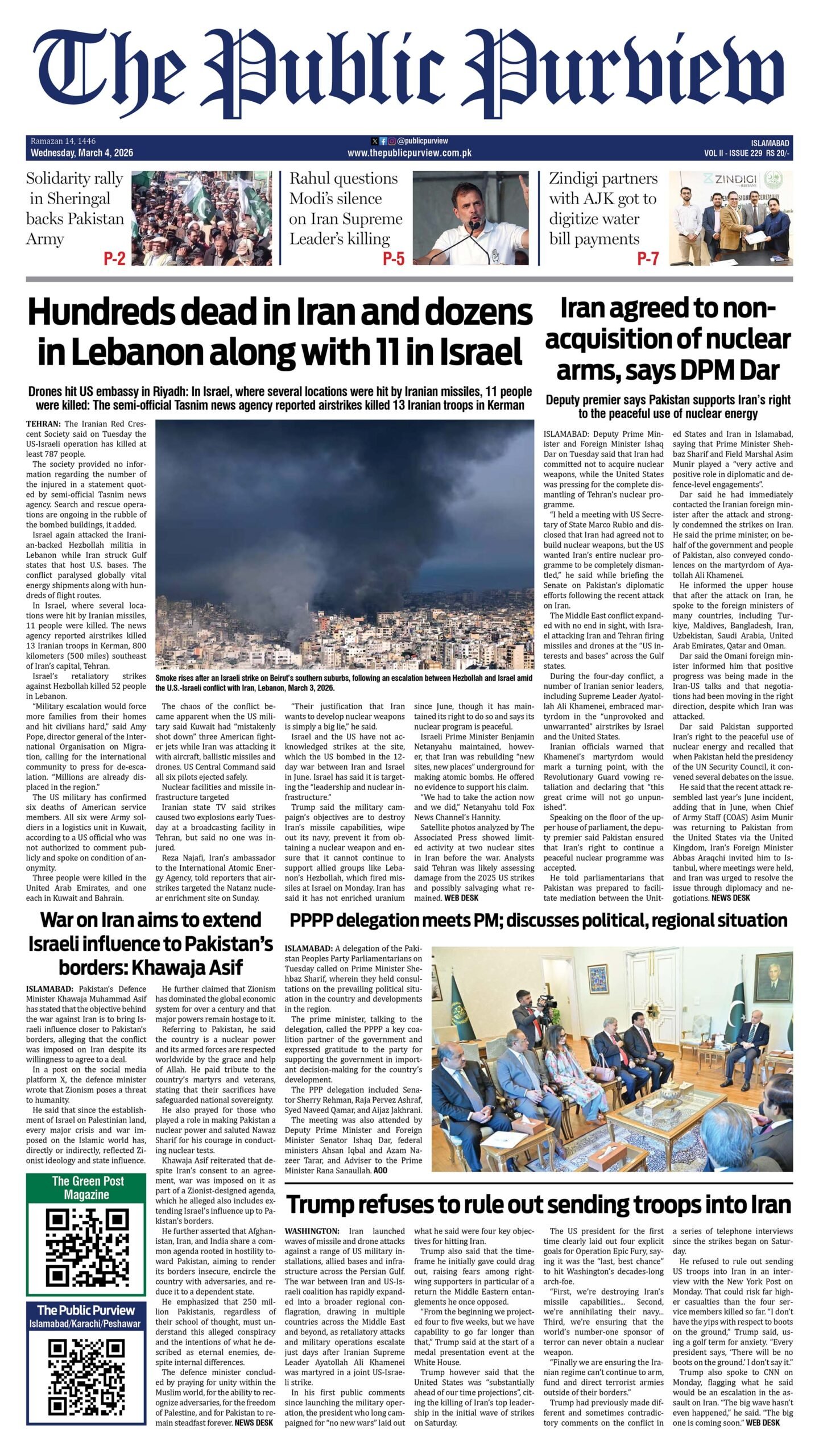Islamabad — The Al Baraka Pakistan Olive Summit 2025, held at Serena Hotel Islamabad, brought together policymakers, diplomats, researchers, and industry leaders to shape the future of Pakistan’s olive industry. Organized by the National Alliance for Safe Food (NASF) and the Pakistan Olive Initiative, the summit focused on building a safe, sustainable, and export-ready supply chain for the country’s growing olive sector.
Inaugurating the event, NASF Chairman Rana Awais Khan emphasized the importance of empowering olive farmers, fostering innovation, and promoting global competitiveness for Pakistan’s olive products. He thanked Al Baraka Bank Pakistan for its strategic partnership in advancing agricultural financing and sustainable production.
Al Baraka Bank CEO Muhammad Atif Hanif reaffirmed the bank’s commitment to supporting the olive value chain, calling it a key component of the institution’s social and economic responsibility. He highlighted the role of financial institutions in enabling long-term agricultural transformation.
Federal Minister for National Food Security & Research, Rana Tanveer Hussain, served as Chief Guest and underscored the government’s commitment to expanding olive cultivation. He noted that over 6.3 million olive trees have been planted across 51,000 acres nationwide. The minister also announced Pakistan’s intention to join the International Olive Council (IOC), opening new avenues for trade, research, and global collaboration.
The Al Baraka Pakistan Olive Summit drew participation from key dignitaries, including MNAs Dr. Zulfiqar Ali Bhatti and Dr. Mirza Ikhtar Baig, as well as ambassadors and representatives from Italy, Jordan, Greece, Palestine, Malaysia, Portugal, Spain, and Denmark. Their presence reflected growing international interest in Pakistan’s olive sector and the potential for bilateral cooperation in technology transfer, training, and market access.
Technical sessions featured high-impact discussions led by experts such as Dr. Muhammad Tariq, National Project Director of the PSDP Olive Program. Topics included sector expansion, global compliance, certification, branding, and export strategies. Panel discussions engaged stakeholders from government, academia, and the private sector on innovation and investment.
The closing session of the Al Baraka Pakistan Olive Summit was graced by Rana Mashhood Ahmad Khan, Chairman of the Prime Minister Youth Programme, who emphasized youth empowerment and skill development in agriculture and food technology. He encouraged young entrepreneurs to actively participate in the olive value chain, calling it a symbol of national potential.
Delivering the vote of thanks, Faad Waheed, Former SVP Islamabad Chamber and Federal President NASF, called the summit a milestone in positioning Pakistan as a future leader in sustainable olive production. He highlighted strengthened local capacity, global partnerships—including with the UC Davis Olive Center (USA)—and increased support for farmers as key drivers of progress.
Representatives from over two dozen institutions attended, including PPAF, PEEF, Pakistan Agriculture Coalition, NRSP, USAID, FAO, IWMI, TDAP, BOI, PSQCA, Pakistan Halal Authority, and the Pakistan National Accreditation Council.
The Al Baraka Pakistan Olive Summit concluded with a shared vision to transform Pakistan into a regional hub for olive oil production and export, driven by innovation, collaboration, and sustainability.
For more news related to the economy, visit here: https://thepublicpurview.com/category/business-news/
For climate-related stories, visit: The Green Post







 Today's E-Paper
Today's E-Paper